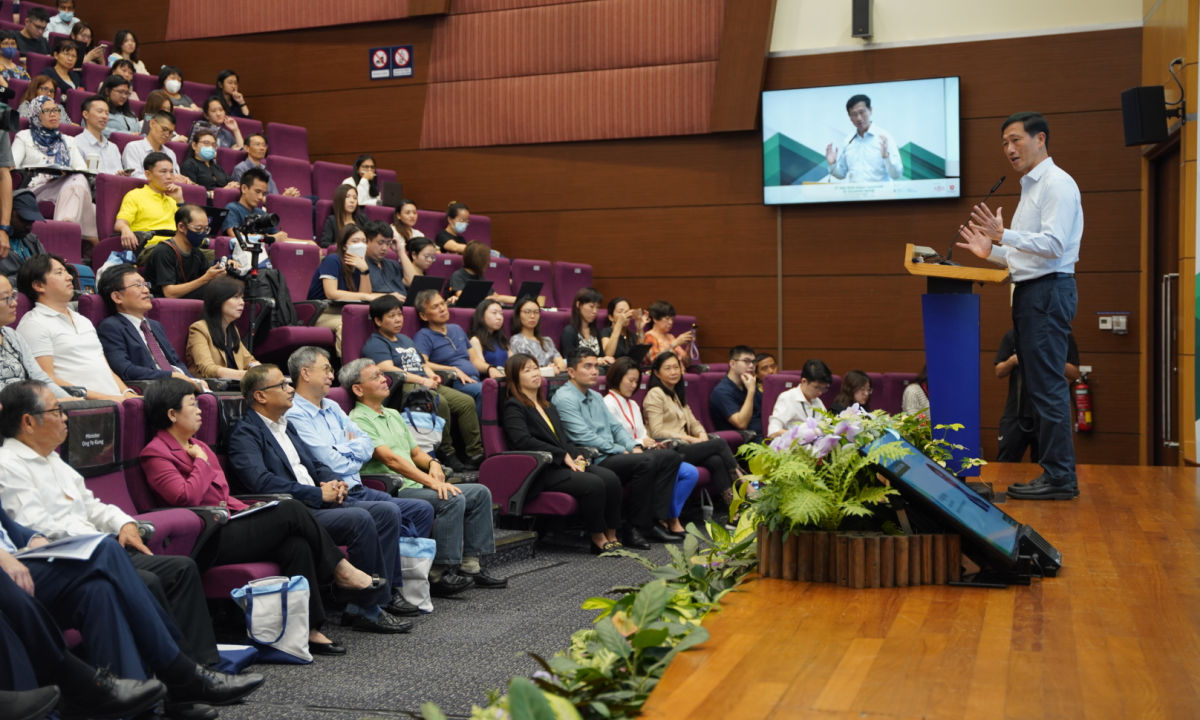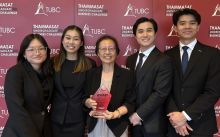
Will we have planned well enough to live well in our golden years, especially if some form of long-term healthcare is needed? How well do we plan for retirement?
Despite retirement being such a prominent concern, only 34 per cent of ‘young seniors’ (Singaporeans born in 1973 or earlier) rate their retirement preparedness as good, while another 27 per cent do not even have a retirement plan. These were some of the findings revealed in a new study published by SMU Centre for Research on Successful Ageing (ROSA), Singapore’s Three Generational Packages.
This was revealed at ROSA’s third annual Symposium on Successful Ageing on 12 October 2023 at the SMU Mochtar Riady Auditorium, where Singapore Minister for Health Mr Ong Ye Kung delivered a keynote address.
This year’s symposium was themed ‘Supporting Active Ageing in Our Communities’ and was attended by over 300 members from government, academia, philanthropy, and industry. Attendees came together to discuss changes that might be able to help move the needle in helping Singapore’s seniors adapt, whether in terms of their physical living spaces, or the type of work in which they engage.
Discussions at the symposium addressed the opportunity that ageing represents by diving into the emerging concerns that Prime Minister Mr Lee Hsien Loong highlighted in Singapore’s National Day Rally 2023.
Where interventions might be most effective
ROSA’s new study examines the health and economic characteristics across Singapore’s Pioneer, Merdeka and Majulah generations, including financial adequacy, within the context of the impact on successful ageing.
More than 6,400 Singaporeans between the ages of 53 and 78 (inclusive) were polled in July 2023, drawing on data from the Singapore Life Panel® (SLP). This study is the first where ROSA leveraged its vast database to cross-examine financial adequacy and characteristics across generations, with a focus on ‘young seniors’.
“Societies conventionally view ageing populations as a problem and it is only of late, that we are reframing the super-aged society as an asset for all. ROSA is committed to analysing the traits of silver societies and how we can better reap the dividends of longevity from an evidence-based approach,” shared Professor Paulin Straughan, Director of ROSA.
“With this study, we gain a good grasp of the main concerns of each generation and the areas where interventions may be most effective.”
Some of the other key findings reveal that older adults in the Pioneer Generation are more likely to live alone, compared to those in the Merdeka Generation or young seniors.
Tailored initiatives for three generational groups
The insights gleaned also segue into ROSA’s continued efforts to translate applied research into evidence-based policy interventions.
The Pioneer Generation may experience a greater sense of isolation or loneliness from a shrinking social circle as their peers pass on, and be more likely to live alone, be widowed or separated. Policies must thus be able to support social initiatives that combat isolation and empower this group with their self-agency. Additionally, the ROSA team suggests that policymakers should think about how the built environment promotes social inclusivity for this generation.
With findings showing that approximately half of the Merdeka cohort is employed, the recommendation is for policies to promote part-time work, retraining and financial incentives to encourage gainful employment of these seniors. Skills-development programmes and tailored initiatives can also help to empower those from the Merdeka cohort for suitable job opportunities and engagement through volunteering.
As for young seniors who are actively preparing for retirement, there needs to be a balance struck between their goals and the prevailing narratives of extended employment. The team also recommends that policymakers and researchers might want to explore the changing meaning of work and retirement, as well as the broader psycho-social implications. There is also a need to educate young seniors about more up-to-date wealth management strategies, beyond traditional legacy insurance.
This study was made possible through the generosity of The Ngee Ann Kongsi and the support of the Ministry of Education.
Full details of the study can be accessed here.


